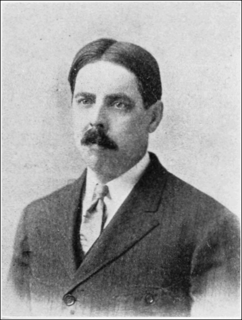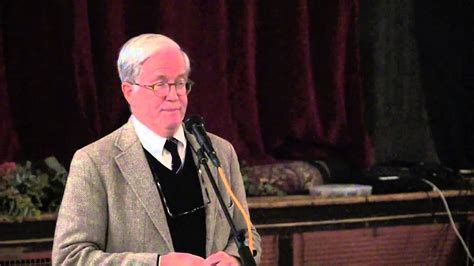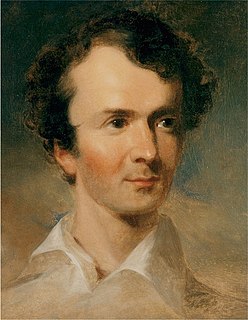A Quote by Stephen Jay Gould
The real tragedy of human existence is not that we are nasty by nature, but that a cruel structural asymmetry grants to rare events of meanness such power to shape our history.
Related Quotes
Contingency is rich and fascinating; it embodies an exquisite tension between the power of individuals to modify history and the intelligible limits set by laws of nature. The details of individual and species's lives are not mere frills, without power to shape the large-scale course of events, but particulars that can alter entire futures, profoundly and forever.
I would say that I have been consistent in my broad view of how American power should be deployed, and the view that we underestimate our power when we restrict it to just our military power. We shortchange our influence and our ability to shape events when that's the only tool we think we have in the toolbox.
Plain experience and common sense inform us that no abstract Person can have made us as we are without also wishing to delete us and start over (Gen. 8:21; Zeph. 1:2). Therefore, the existence of cruel and arbitrary nature, together with the universality of human sin, prevents us from beginning the theological enterprise with any concept of God that is distinct from revelation. All theologies of a cosmic harmonic principle shipwreck on the truths of tragedy, catastrophe, and injustice.
Understanding human nature must be the basis of any real improvement in human life. Science has done wonders in mastering the laws of the physical world, but our own nature is much less understood, as yet, than the nature of stars and electrons. When science learns to understand human nature, it will be able to bring a happiness into our lives which machines and the physical sciences have failed to create.
Idealists are people who believe in the potential of human nature for transformation. . . . The most essential attribute of human nature is its mutability and freedom from instinct . . . it is always within our power to change our nature. So it is actually the idealists who are on the mark and the realists who are off base.
Sören Kierkegaard has another answer: human existence is possible as existence not in despair, as existence not in tragedy; it is possible as existence in faith... Faith is the belief that in God the impossible is possible, that in Him time and eternity are one, that both life and death are meaningful.



































